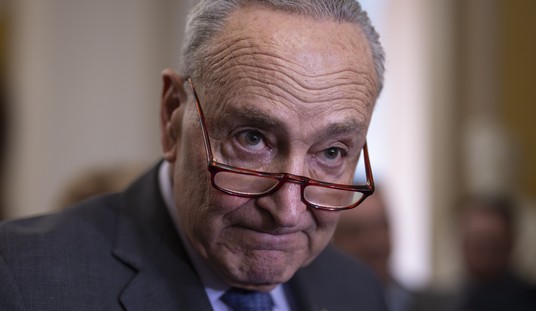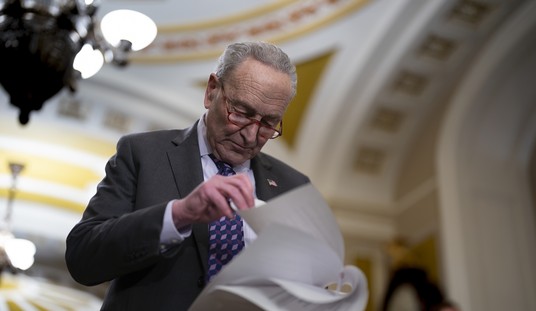First off, let’s peruse this video very quickly: via Hot Air, it shows Senator Barack Obama claiming that it was ‘unpatriotic’ for President George Bush to oversee an increase in the debt of four trillion dollars over eight years…
…because apparently it’s much more patriotic to increase the debt by four trillion in two years, seven months. Which is how much Barack Obama has used… what was the phrase? Ah, yes: “the credit card from the Bank of China” …to provide us with – well, nothing in particular except a lot of excuses and a lowered credit rating. I for one applaud this demonstration that Barack Obama can be more efficient than George W Bush was in something: frankly, we were all starting to wonder.
But we’re not going to talk about that. What we are going to talk about is the way that this conversation wouldn’t have been as easy to have in 2004, or even 2008.
One of the interesting things about digital innovations is that their lack of an actual physical presence can make us forget just how old or new they can be. For example: streaming videos. Ubiquitous, particularly YouTube. It’s at the point now that the historical archives are pretty comprehensive: if you want to see a clip from Casablanca or a Chiffon commercial from the 1970s or the Kennedy/Nixon debate, you can. And so I think that we have become accustomed to the idea that the video record is there, and that we sort of subconsciously assume that it has always been there.
But that’s not true! YouTube was founded in February of 2005. To give you a perspective: this means that the entire 2004 Bush re-election campaign – which was really the first election where the political blogosphere played a significant role – was done without any kind of easy video sharing service at hand. This had an effect on everything from gotcha moments to campaign commercials, and even if you are a person who participated in the blogosphere back then (as I did) you’re going to be a little hard-pressed to remember how you did certain things back then*.
Now, by 2006 and 2008 this had changed, of course: 2008 was easily the first YouTube election. If you were a candidate, you had some very nice options all of a sudden. You could send the ads directly to your supporters; in fact, you could give them longer ads, because they wanted more than 30 seconds or a minute. Or you could give little mini-speeches, which they could watch whenever they liked. And people could pass around your ads, thus giving you market penetration that you didn’t have to pay for. And then there was grassroots activism. Have your supporters take video of your field appearances, and tout the best of them; have your supporters film your opponents, and wait for them to make a gaffe. All the things that you can do with access to truly cheap video, in other words; and all great stuff… with one problem.
It never goes away.
This is a problem because politicians have been operating under the paradigm that you can make inconvenient things from your past go away, if you really, really need to. And I’m not talking about the big things, like a dead girl in your bed or a federal conviction for racketeering; I’m talking about embarrassing statements from the past, flip-flops that you don’t want to dwell on, inconvenient votes, or just taking out your bad day on somebody who happened to be in range at the wrong moment. In short, anything that looks bad in a campaign commercial; but before February of 2005 it was a lot harder to show that sort of thing to people without the assistance of a professional video editor. And even then there were set media channels for that sort of thing, that typically cost money to get on, and you had to pick a time to air it, and…
Well, you see where this is going: we are now living in an universe where those assumptions are not only false, but they’re kind of naive. This is, of course, a self-correcting ‘problem:’ in 2010 we saw how viral footage and instantly accessible records somewhat dramatically resulted in requiring a startlingly large number of politicians to seek a second career as lobbyists. And that will happen in 2012 as well (2014, to a lesser extent); the easy targets will be hammered most powerfully.
The problem for the President? He’s one of those easy targets, as the above video shows. It was not a good idea to yell about the debt incurred by your predecessor when you’re going to end up beating his record in half the time; but Barack Obama is very much an old-style politician – and, at that, one not used to being called on his record (this is where a lack of re-election campaign experience hurts). He’s thus got four to six years of potential gaffes to explain away… and the worst bit (for him)? Everybody has access to those gaffes.
Everybody.
To quote Neal Stephenson: welcome to the Age of Scrutiny**.
Moe Lane (crosspost)
*Although the answer is probably “Pretty badly, by modern standards.”
**Re-reading the article: like most stuff I wrote back in 2008, I hadn’t really properly appreciated the level of Messianic hero-worship that the media would indulge in in order to elect Barack Obama President of the United States of America. I suspect that a lot of the things that I confidently (and erroneously, to be sure) anticipated in 2008 will come true in 2012 instead, but I can’t quibble if you take past predictions into account.











Join the conversation as a VIP Member